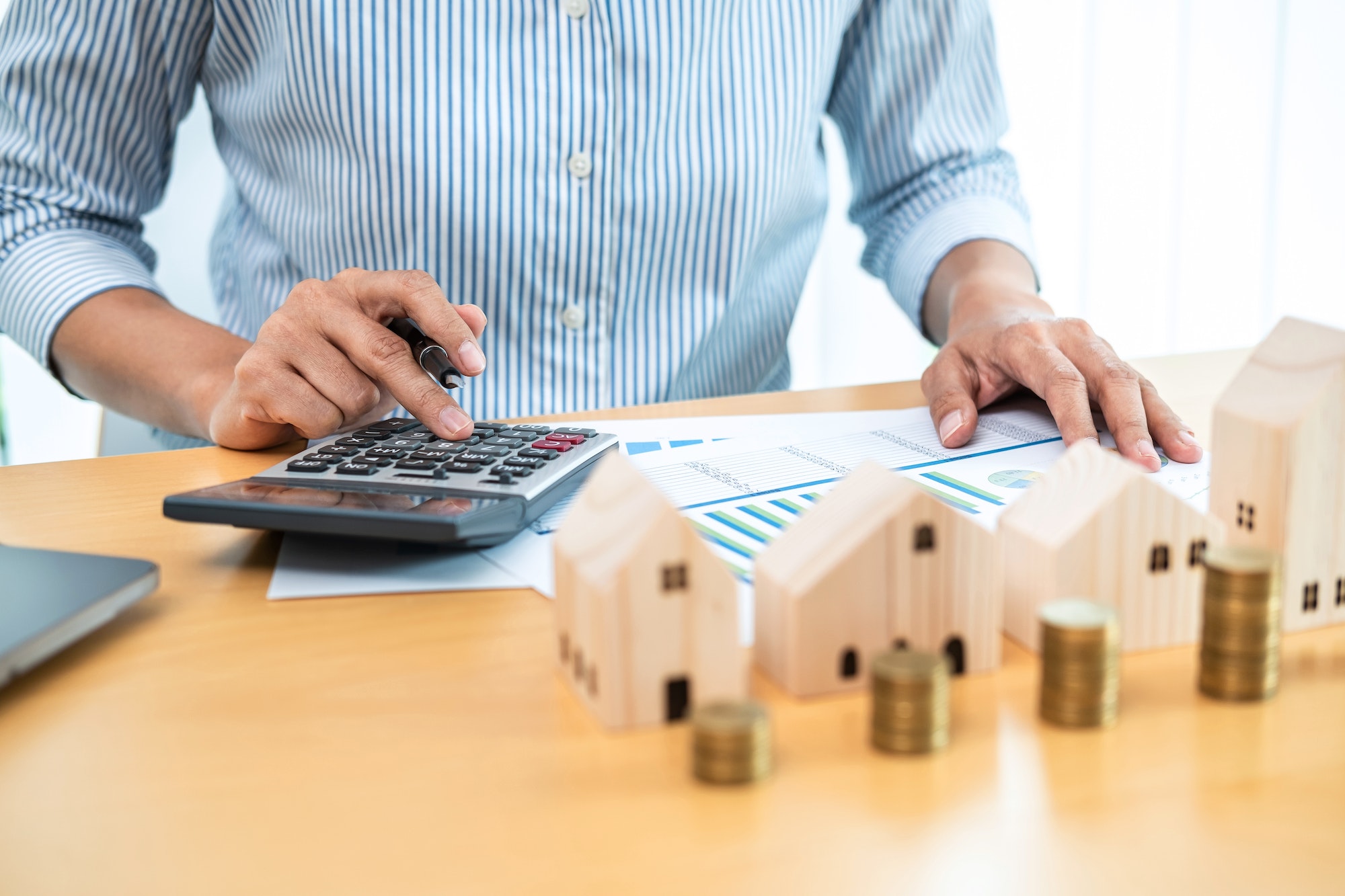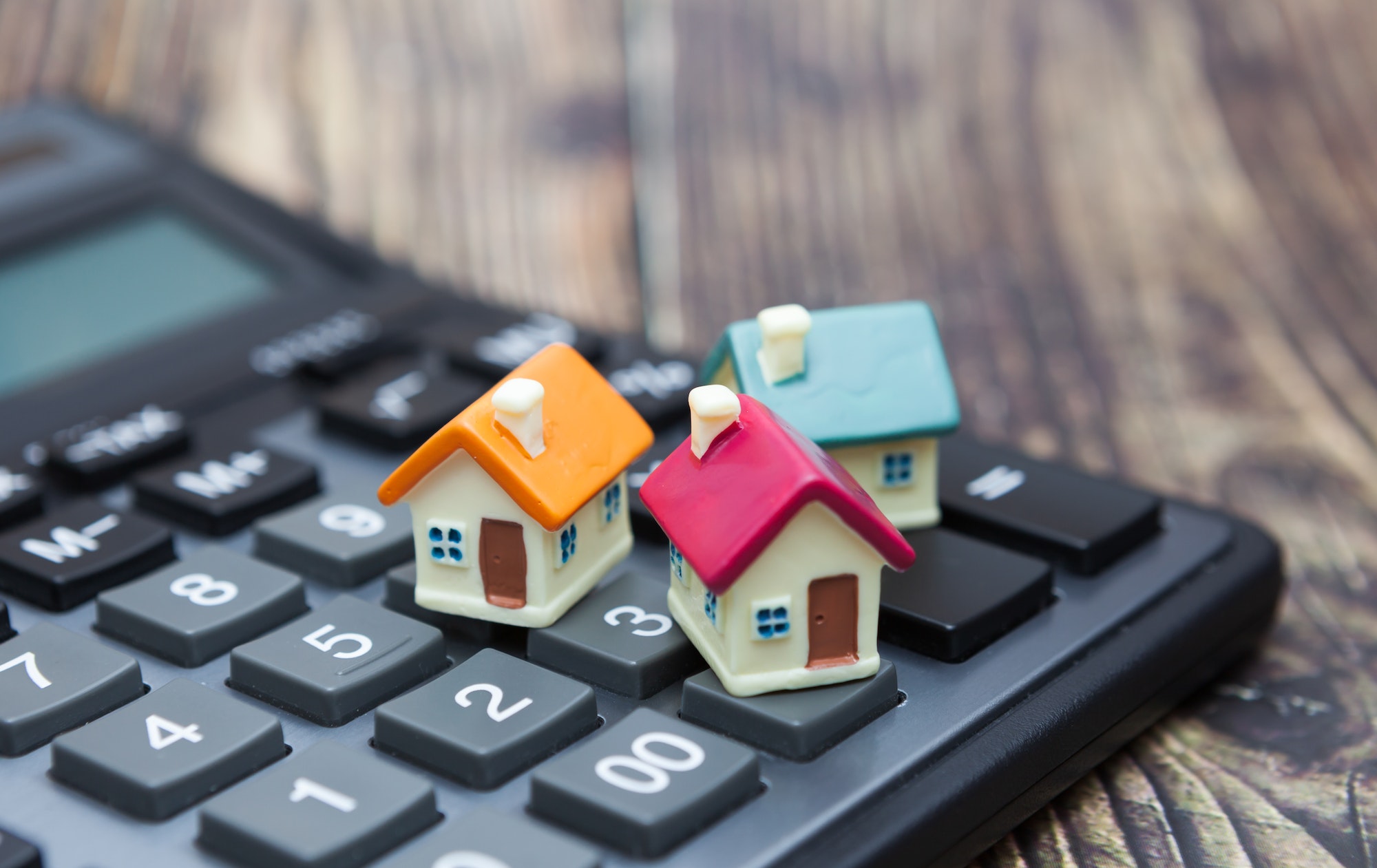If you’re raking in around $45,000 annually, you may find yourself asking, “how much house can I realistically afford?” You’re not alone in your quest for homeownership.
However, don’t be disheartened. Many people in the same financial boat have successfully navigated the choppy waters of real estate. The key lies in understanding your financial situation, and the housing market, and leveraging the right strategies.
Around 32% of American homeowners had a gross income between $30,000 and $50,000 in 2021. This statistic should inspire confidence! With the right tools and knowledge, affording a house with a $45,000 salary is not only possible, but it’s also within your reach.
Table of Contents
What Kind of House Can You Afford on a $45,000 Salary?
- Understand Your Debt-to-Income Ratio
This is the percentage of your monthly gross income used to repay debts. Lenders typically prefer a ratio under 36%. - Calculate Your Buying Power: Use online calculators to understand your purchasing power. Always consider your income, debt, credit score, and down payment.
- Save for a Down Payment: The larger the down payment, the smaller the mortgage loan needed. Aiming for a 20% down payment can significantly reduce monthly payments.
- Consider House Hacking: Renting out a portion of your home can help offset the mortgage cost.
When asking, “On a $45,000 income, what kind of house can I afford?” it’s crucial to dive into the numbers. Most financial advisors suggest that you should spend no more than 28% of your gross monthly income on housing expenses. This is known as the “28/36 rule,” where 36 refers to the recommended percentage of your gross monthly income that should go towards all debt, including your mortgage.
So, if you’re making $45,000 a year, your gross monthly income is approximately $3,750. Based on the 28/36 rule, you should aim to spend no more than $1,050 on your total housing expenses. This includes not only your mortgage payments but also property taxes, home insurance, and any homeowner’s association fees.
Let’s take a look at a case study for more context:
Consider a hypothetical homebuyer, Alex, who earns a $45,000 salary. He has no significant debts and has managed to save $9,000 for a down payment (about 20% of the house price in this scenario). His credit score is good, securing him a mortgage interest rate of 3.5%.
So, how much house can Alex afford? By sticking to the 28/36 rule, and factoring in his down payment, he would be looking at homes around the $100,000 mark.
But remember, this is a simplification. There are other factors that can influence how much house you can afford. For example, the amount of debt you currently have or other monthly expenses.
However, one crucial factor to note is the impact of the location on house prices. According to Zillow, as of the first quarter of 2023, the median home price in the U.S. was $436,800. However, this varies significantly from state to state, with the median price in West Virginia being $147,000, while in Hawaii, it skyrockets to $835,000.
Therefore, if you’re earning $45,000 a year and are flexible on location, you may afford more houses by choosing to live in a more affordable state.
Lastly, remember to factor in closing costs, moving expenses, and the cost of maintaining a home. Being realistic about these costs will help you make a more informed decision about how much house you can truly afford on a $45,000 salary.
Tips to Increase Your Home-Buying Power
Increasing your home-buying power isn’t just about making more money. It involves strategic financial management, smart saving, and making informed decisions about your lifestyle and future goals. Here are some tips, backed by data and examples, to help you stretch your home-buying power further:
Improve Your Credit Score
A higher credit score can fetch you a better mortgage rate, reducing your monthly payments. According to Experian, a credit score of 700 or above is generally considered good. Boosting your credit score from 650 to 700, for example, could shave off nearly 0.5% of your mortgage interest rate, translating into tens of thousands of dollars saved over the life of the loan.
Pay Down Debts
Reducing your debt-to-income ratio can make room for a larger mortgage payment. For instance, if you have student loans or credit card debt, paying them off could free up a significant portion of your income for mortgage payments.
Consider a Side Hustle
The gig economy can provide opportunities for additional income. A recent Bankrate survey found that nearly half of working Americans (45%) reported having a side job. Extra earnings can boost your home buying power and help save for a larger down payment.
Look into First-Time Homebuyer Programs
Programs like the FHA loan program or the USDA loan program can offer financial assistance and lower interest rates. These can significantly reduce the amount you need to save for a down payment. For example, an FHA loan only requires a 3.5% down payment if your credit score is 580 or higher.
Buy in a Cheaper Market
If your work allows, consider relocating to a more affordable housing market. As per Zillow, the median home price varies considerably across the U.S. For example, choosing to live in a state like Ohio with a median house price of $185,000, compared to California with a median price of $812,430, can significantly stretch your buying power.
Consider a Fixer-Upper
Houses needing work are often cheaper up front, but be aware of potential renovation costs. According to HomeAdvisor, the average cost to remodel a house is between $19,800 and $73,200. However, if you’re handy or willing to put in the work, a fixer-upper can still be a great way to get more house for your money.
Increasing your home-buying power is about more than just increasing your income. By implementing these strategies, you can position yourself to buy a home that meets your needs and fits within your $45,000 salary.
Buying a house on a $45,000 income can be a reality. All it takes is careful financial planning, a bit of creativity, and the willingness to make it happen. With these steps, you’ll be well on your way to becoming a homeowner.
FAQs
Q: How does a higher credit score affect home buying?
A: A higher credit score can get you a better mortgage rate, which can reduce your monthly payments and the overall cost of the home over the life of the loan.
Q: Can I afford a house if I have other debts?
A: Yes, but it may affect the amount you can borrow. Lenders look at your debt-to-income ratio, and having a lot of existing debt can lower the mortgage amount you might get approved for.
Q: What is a good down payment on a house?
A: Traditionally, a down payment of 20% of the home’s price is considered good. However, many lenders now accept lower down payments. Remember, the larger your down payment, the smaller your mortgage will be.
Q: How can first-time homebuyer programs help me?
A: First-time homebuyer programs can offer lower down payment requirements, lower interest rates, and sometimes even grants or credits to help with the purchase of your first home.
Q: Can I afford a more expensive house if I choose a cheaper market?
A: Yes, housing costs can vary greatly from one location to another. If you’re flexible about where you live, choosing a cheaper market can allow you to afford a more expensive or larger house.
Q: What are the benefits of buying a fixer-upper?
A: Fixer-uppers are often cheaper upfront, so you may be able to buy a larger house or in a better location than you could otherwise afford. However, you should also consider the cost of necessary renovations.
Q: How does my income affect the home loan I can get?
A: Lenders typically use your income to determine how much you can borrow. The higher your income and the lower your other debts, the larger the loan you may qualify for. A $45,000 salary can qualify you for a home loan, but the exact amount will depend on other financial factors.
Discover more from Futurist Architecture
Subscribe to get the latest posts sent to your email.




